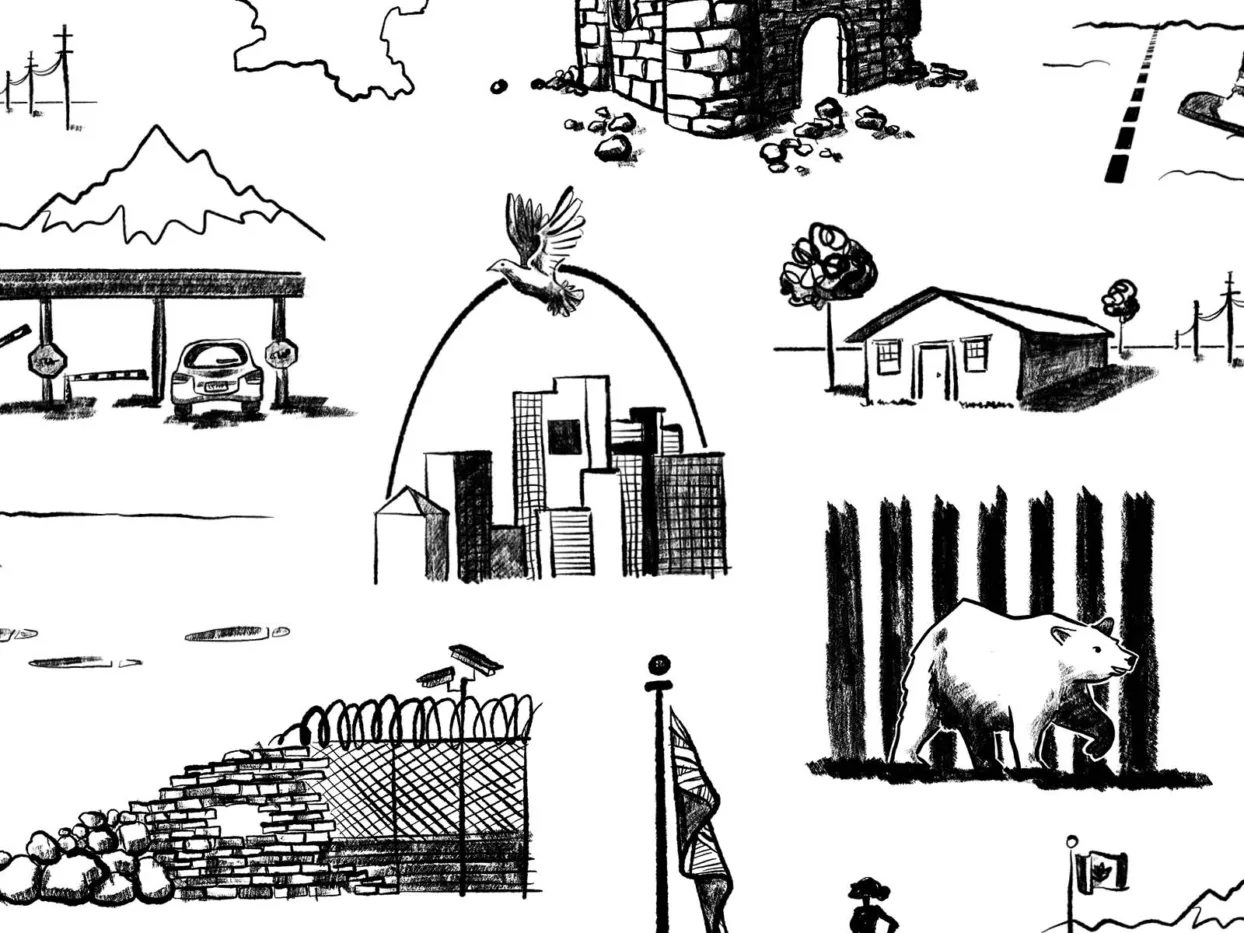
Image by Ivy Sanders Schneider

Image by Ivy Sanders Schneider
In 1990, there were fifteen international border walls, according to the political geographer Reece Jones. Today, that figure has more than quintupled — and it doesn’t account for the vast surveillance apparatuses that track and criminalize migration even in the absence of brick-and-mortar (and chain-link, and steel) barriers. By 2025, the global border-security market is expected to generate more than $65 billion in revenue.
These structures and systems haven’t stopped major conflicts from splitting open the world’s well-barricaded seams. After Russia annexed Crimea in 2014, five neighboring countries, including Ukraine, put up fences along their borders with Russia or Belarus. In 2022, Putin invaded Ukraine anyway, launching a war that now appears intractable. Israel imposed a siege on the Gaza Strip seventeen years ago, creating what Human Rights Watch and other organizations have called an “open-air prison.” Hamas’s October 7 attack breached Israel’s billion-dollar fence, and in the months since, the Israeli military has decimated Gaza, bombarding and starving the more than two million Palestinians trapped within.
In polls taken this year, immigration repeatedly outranked other issues as the most important facing the United States. Calls to “build the wall” resound on the right, and, despite campaign promises to the contrary, President Biden has evinced a similar toughness on the issue. “To protect America as a land that welcomes immigrants,” he said at the White House in June, “we must first secure the border and secure it now.” Meanwhile, beyond utopian calls for “open borders,” the left has struggled to articulate a unifying alternate vision.
In our interconnected, broken-up world, questions about sovereignty, subjugation, and security are increasingly urgent. For our Dispatches section, we asked theorists, journalists, and experts about the political and rhetorical power of borders and barriers, from Texas to Niger. How should we balance the rights to self-determination and movement? What, if anything, legitimates the line between there and here? As Erik Baker writes in his contribution about American universities and Israel, “Walls can hide you, but they can’t hide themselves.”